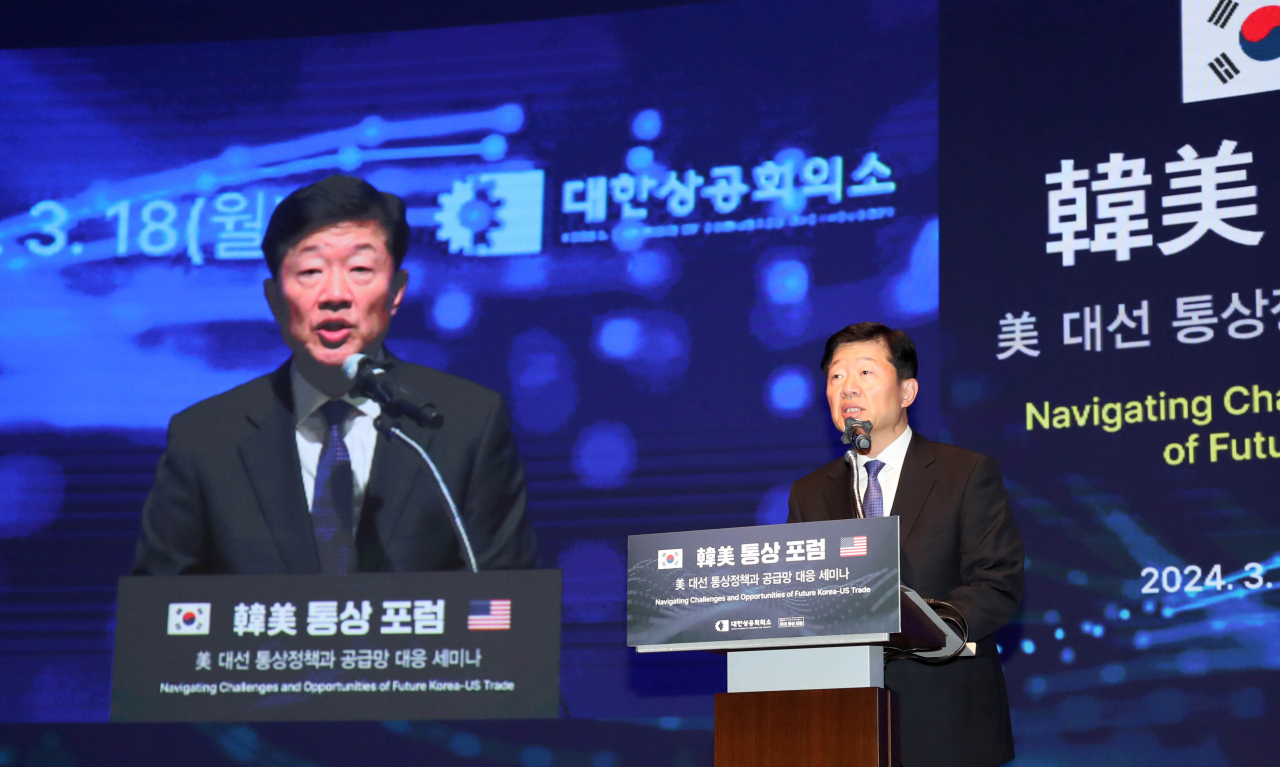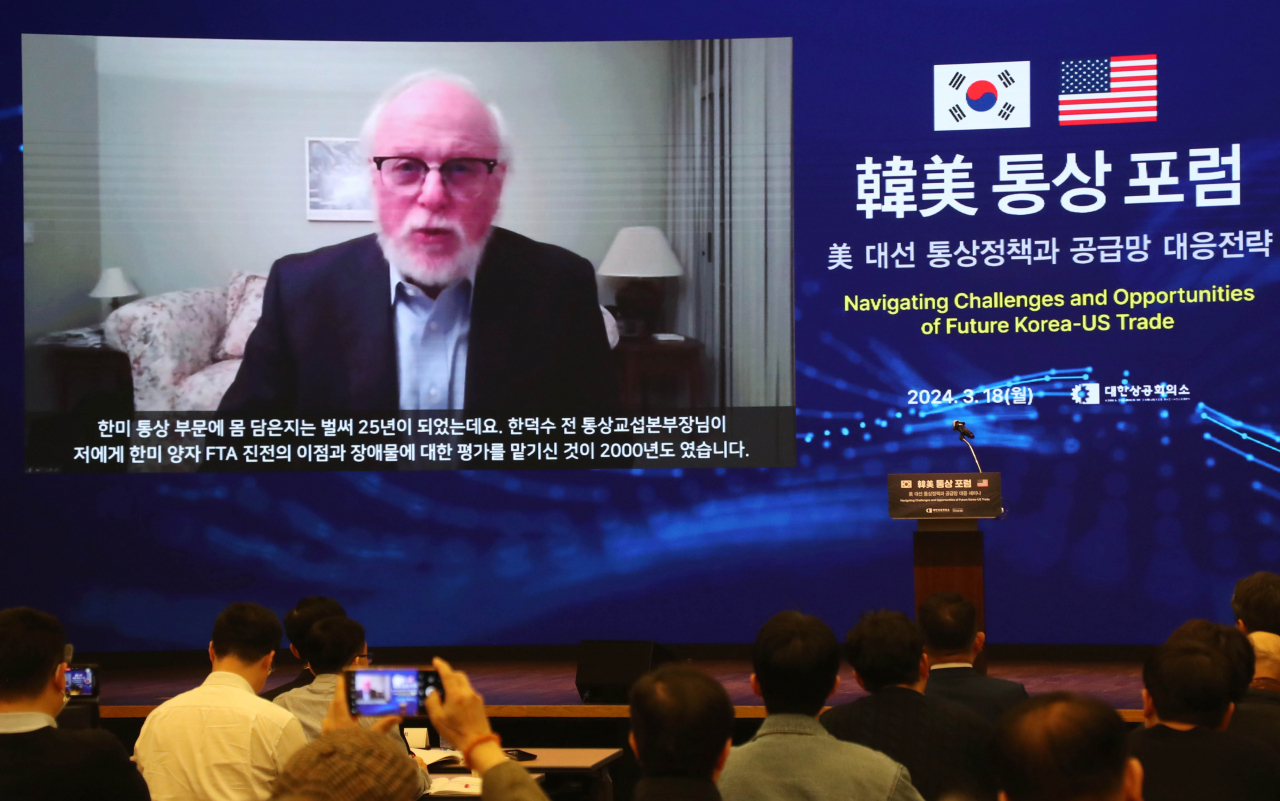 |
Woo Tae-hee, executive vice chair of the Korea Chamber of Commerce and Industry, delivers an opening remark at a forum titled "Navigating challenges and opportunities of future Korea-US trade," held at the business group's headquarters in Seoul, Monday. (The KCCI) |
Korean businesses are unlikely to face a massive challenge by possible shift in US trade policies resulting from the 2024 US presidential election but they should get ready for small hiccups, experts on international trade said on Monday.
“From the US perspective, Korean companies are very important partners in trade and investment. … Since the Korea-US Free Trade Agreement has been revised in a way that satisfies US constituencies, there may be hiccups (in the trade relationship) after the presidential election, not a massive problem,” Kate Kalutkiewicz, a senior managing director at Washington-based trade consulting firm McLarty Associates said during a Korea-US Trade Forum hosted by the Korea Chamber of Commerce and Industry in Seoul.
US experts on international economics and trade, along with attorneys from major Korean law firms, gathered to examine the potential impact of the 2024 presidential election on US economic policies, including President Joe Biden's signature Inflation Reduction Act.
The investments and jobs created by foreign companies investing in the US enjoy support across a wide swath of political parties and in key states, so candidates and policymakers in Washington will not want to see the IRA policies weakened, according to Kalutkiewicz.
“Whether the Republicans or Democrats are in power in the White House and Congress, the idea that the US needs to expand the tools in its toolkit to address unfair competition, not only directly from China but through China's investments in other markets, is going to be probably the new focus of trade policy,” she said, joining the forum virtually.
 |
Jeffrey J. Schott, a senior fellow at the Peterson Institute for International Economics, speaks in a pre-recorded video during a Korea-US trade forum hosted by the business group, held at its headquarters in Seoul, Monday. (The KCCI) |
Jeffrey J. Schott, a senior fellow at the Peterson Institute for International Economics, said US trade policy will take a more protectionist approach regardless of who wins the presidential election in November.
As many of the former Donald Trump administration tax cuts are set to expire at the end of 2025, fiscal deficit management is expected to emerge as a domestic political issue for both parties in the US, he said.
"Both Democrats and Republicans will look for new sources of revenue to help keep the budget deficit manageable. ... Trump will see this primarily through tariffs as a revenue raiser to fund his tax cuts," he said.
Korean exporters will be subjected to substantial taxes on US imports due to climate legislation, which would impose tariffs on goods with a bigger carbon footprint, he added.
Considering Trump's negative view on eco-friendly policies, there is a possibility he would attempt to neutralize the IRA's regulations supporting the battery industry if elected, according to Kim Sun-young, a senior foreign attorney at Shin & Kim.
“Although it is unlikely that Congress will repeal the bill itself, it is necessary to prepare for a scenario in which tools such as the President's Executive Order or Congressional Review Act are used,” she said.
If Trump abolishes the tax credits available to people who buy electric vehicles, that will slow down the US transition to clean energy, though it will not be able to stop the global trend toward EVs.
If that happens, "It would be good for Korean carmakers to watch how US automakers prepare for potential policy changes and be in solidarity with them, as Trump’s anti-EV policies would be compromised at some point,” she added.
Yulchon Partner Park Joo-hyun advised Korean automakers to map out a strategy to respond to potent market changes, such as expanding the production of hybrid models or opening sales channels to other markets that are friendly to electric vehicles, such as European Union countries.







